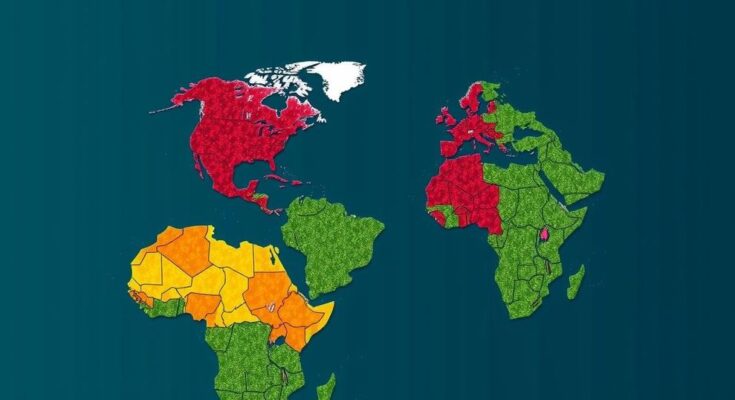At the COP29 Climate Conference in Baku, developing nations criticized a $300 billion climate finance deal as insufficient, asserting it fails to address the urgent needs posed by climate change. Key figures from India and Sierra Leone expressed their disillusionment, calling the agreement an “optical illusion”. The pact mandates developed countries to fund climate initiatives by 2035, but many believe this falls short of what is required to combat escalating climate challenges.
At the recent COP29 Climate Conference held in Baku, developing nations expressed strong discontent regarding the $300 billion annual pledge for climate finance, characterizing it as woefully inadequate. This agreement, achieved after intense negotiations among nearly 200 nations, was perceived as an insult by multiple countries, particularly those facing the direct consequences of climate change. India’s delegate, Chandni Raina, termed the deal an “optical illusion,” while Sierra Leone’s climate minister criticized it for showing a “lack of goodwill” from wealthier nations. Despite these sentiments, the agreement is positioned as a foundational step towards addressing climate financing for poorer nations, although many call for significantly higher contributions. The conference highlighted ongoing tensions regarding the distribution of responsibilities in combating climate change, as developing countries advocated for increased support from historically larger polluters while facing a dire climate emergency. The final pact stipulates that developed nations must allocate at least $300 billion annually by 2035, with rising calls for emerging economies to also contribute to climate finance efforts.
The COP29 Climate Conference showcased the critical complexities surrounding global climate finance negotiations, where historical accountability and financial commitments intersect. Developed nations, generally viewed as the main contributors to greenhouse gas emissions, faced scrutiny from developing countries most impacted by climate-related disasters. The failure to meet the projected funding needs reflects the economic and political challenges that many nations encounter, often leading to conflicts between ambitious climate goals and national fiscal constraints. The discussions aimed at reconciling these dividing lines in a global response to climate change.
In summary, the outcomes of COP29 have been met with disappointment from developing nations who view the $300 billion climate deal as grossly insufficient. Despite the agreement marking a step forward in climate finance commitments, it has sparked criticism for its failure to meet the urgent financial needs of nations vulnerable to climate change. The divergence in expectations highlights the ongoing challenges in reaching equitable solutions and underscores the urgent necessity for collaborative efforts among all nations to effectively combat climate change.
Original Source: jordantimes.com




